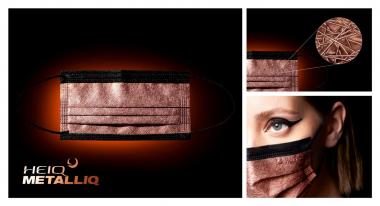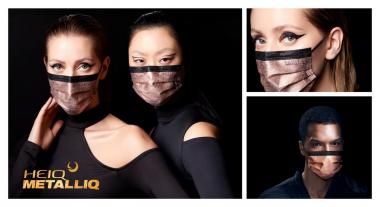New Deakin REACH partnership: Textiles made from organic waste?
Australia is one of the highest waste generators in the world, with over 7.6 million tonnes of food ending up in landfill each year, costing over $36.6 billion and producing 17.5 million tonnes of greenhouse gas.
Deakin’s partnership with Jet Technology through REACH will explore ways to transform industry-generated organic waste into new products like organic textiles and stock feed using a rapid composting system.
Jet Technology’s Environmental Recycling System (ERS) will build a circular economy by creating valuable products for a range of industry sectors.
Australia is continuing to generate more landfill each year. A new partnership between Deakin’s Recycling and Clean Energy Commercialisation Hub (REACH) and Japanese-based company Jet Technology aims to turn this around by repurposing organic waste and transforming it into new products.
Australia contributes more than 7.6 million tonnes of food to landfill annually, costing over $36.6 billion and producing 17.5 million tonnes of CO2.
Deakin University scientist Alfred Deakin Professor and Chair in Biotechnology Colin Barrow and his team from the Centre for Sustainable Bioproducts will work with Jet Technology to explore the possible reuses of organic waste using Jet Technology’s Environmental Recycling System (ERS). The project will focus on converting organic waste from the agriculture, dairy and fishery sectors by drastically shortening composting time so it can be used to make new products.
The four-year research project will be undertaken at the BioFactory at Deakin’s Waurn Ponds campus. It will initially focus on processing agricultural waste, converting apple pomace into a bioproduct for the textile industry. Apple pomace consists of the apple skin, pulp, seeds and stems left over from apple juice manufacturing. Its disposal in landfill can lead to greenhouse gas emissions and potential contamination of soil and groundwater.
If successful, it could lead to the establishment of a local multi-million-dollar bioeconomy where organisations such as councils, supermarkets and food and beverage businesses could cut costs while generating new revenue streams and job opportunities.
Deakin’s REACH initiative collaborates with progressive industry, government, and education partners to establish a multi-billion-dollar bioeconomy in Victoria and push the limits of technological innovation to deliver energy and recycling solutions that reduce landfill, fossil fuel emissions, and the devastating costs of global warming.
Deakin University organic waste Recycling and Clean Energy Commercialisation Hub
Deakin University









